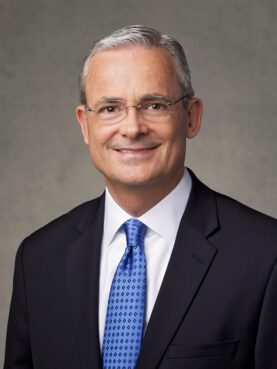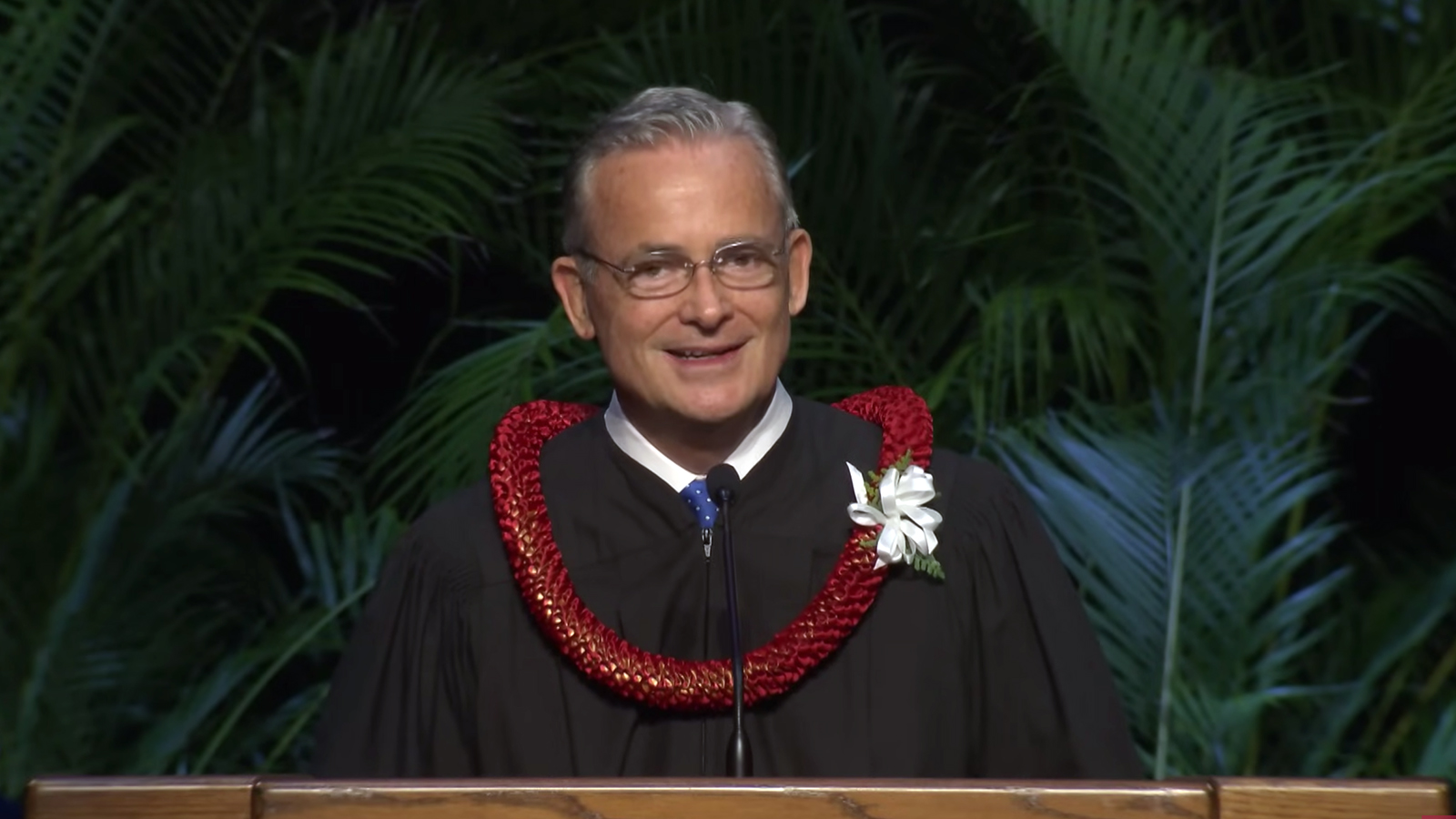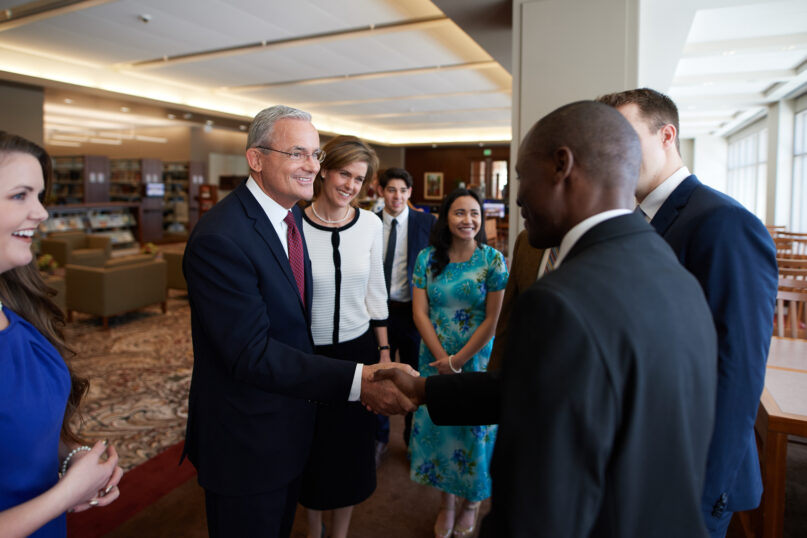(RNS) — With his British accent, stylish suit and gracious charm, Elder Patrick Kearon could have just walked off the set of “Downton Abbey,” the hit PBS television show.
He’s a man coming to grips with his calling in life — as the newest member of the Quorum of the Twelve Apostles, one of the highest leadership roles in the Church of Jesus Christ of Latter-day Saints.
“This is not a role we apply for,” Kearon said in a video interview with Religion News Service. “You don’t seek it. It’s a big shock and extraordinary when it happens. Dealing with that takes time.”
When he was offered the new role in December — which comes with a lifetime appointment — one of the first things Kearon did was list other more qualified people. After accepting the role, he got back to work, hopping on a plane to give a commencement speech at Brigham Young University-Hawaii.
The 62-year-old Kearon, who holds both British and Irish citizenship, is the first adult convert to be named an apostle in more than a century, according to church officials. Raised in the United Kingdom and Saudi Arabia, where his father worked, he became a Latter-day Saint in his twenties.

Elder Patrick Kearon of the Quorum of the Twelve Apostles. (Photo © 2023 by Intellectual Reserve, Inc. All rights reserved.)
He’s best known for a talk he gave about refugees during the church’s 2016 general conference. At the time he was overseeing much of the church’s work in Europe, where a refugee crisis was dominating the news. He said any church leader in his position would have been talking about that issue at the time.
“I believe there are more refugees in the world now than there were then. We as the church will continue to try to help where people are displaced for whatever reason, and to bring some healing, food and shelter,” he said.
Kearon added that he hopes the humanitarian work done by the Church of Jesus Christ of Latter-day Saints will continue to grow in the years to come.
“We hope to expand each year because, goodness knows, there’s need,” he said.
Kearon comes across as a true believer — someone who believes the church’s message about love — with an earnest hope and concern for other people. In a series of interviews with the media this week, he was asked about some of the most troubling issues facing all religious groups, including abuse.
“There is no question in my mind that the abuse of a child or the deliberate abuse of anyone is the most heinous crime and must not be tolerated in any form,” he told the Associated Press. “We must all be much better — regardless of which religious group or denomination — in caring for those who have been victims of those crimes,” he said, adding that the goal is to help them heal, and to “move beyond just surviving that ordeal.”
Kearon told the Salt Lake Tribune that the church hoped to treat LGBTQ members in the same way Jesus did, by blessing them, and talked of the church’s efforts to keep young people engaged through its programs for high school students and college-age church members.
He told RNS the church’s core message — that people are beloved children of God — can help heal American culture, which remains divided and polarized. And if people believed they are loved and valued, he said, they would be more willing to get involved in faith groups and in helping their neighbors.

Elder Patrick Kearon delivers BYU–Hawaii’s commencement address on Friday, Dec. 8, 2023, almost immediately after being appointed the newest apostle of the Church of Jesus Christ of Latter-day Saints. (Video screen grab/BYU-Hawaii)
“Sure, people drift away from religion,” he said. “Well, I hope that some will drift back, and I hope some will run back. If you’re without faith at the moment, please come back. We’ll try and do better.”
In his new role, Kearon will, along with his fellow apostles, help shape church policy, oversee church programs and travel the world to give guidance and encouragement to church members.
The new role, he said, has made him even more aware of his shortcomings — and how much he still needs to grow to meet the demands of the job. The job — like any position of authority or power — comes with risks, he said, as leaders can be filled with pride or can be tempted to misuse their power for their own benefit.
He hopes to follow in the footsteps of other faithful leaders and to remain grounded in his faith.
“So long as I think about who I’m answering to, that’ll help. But sure, we’re all vulnerable to those risks.”





